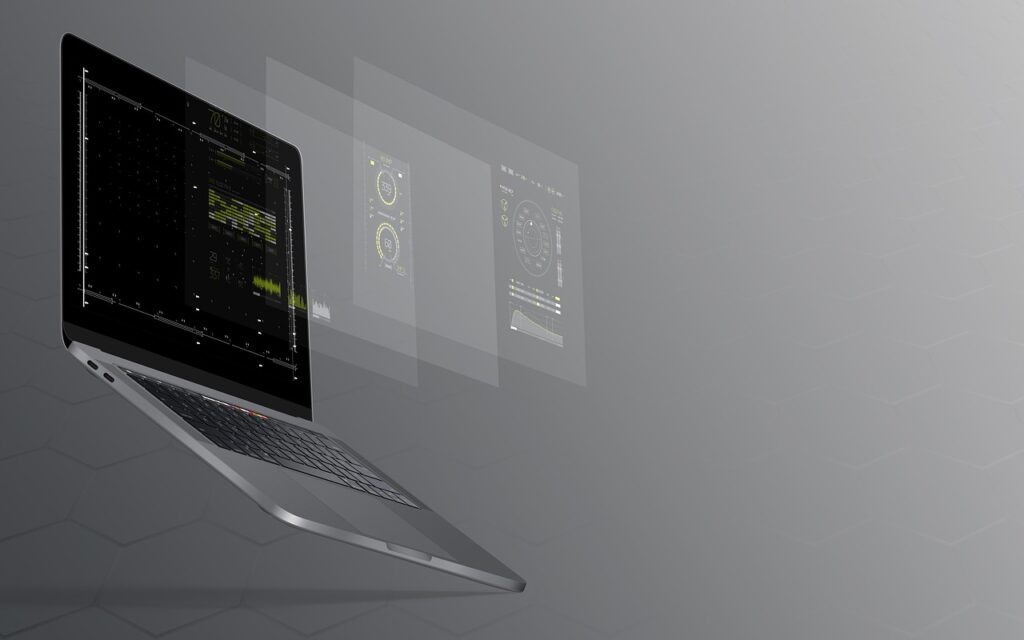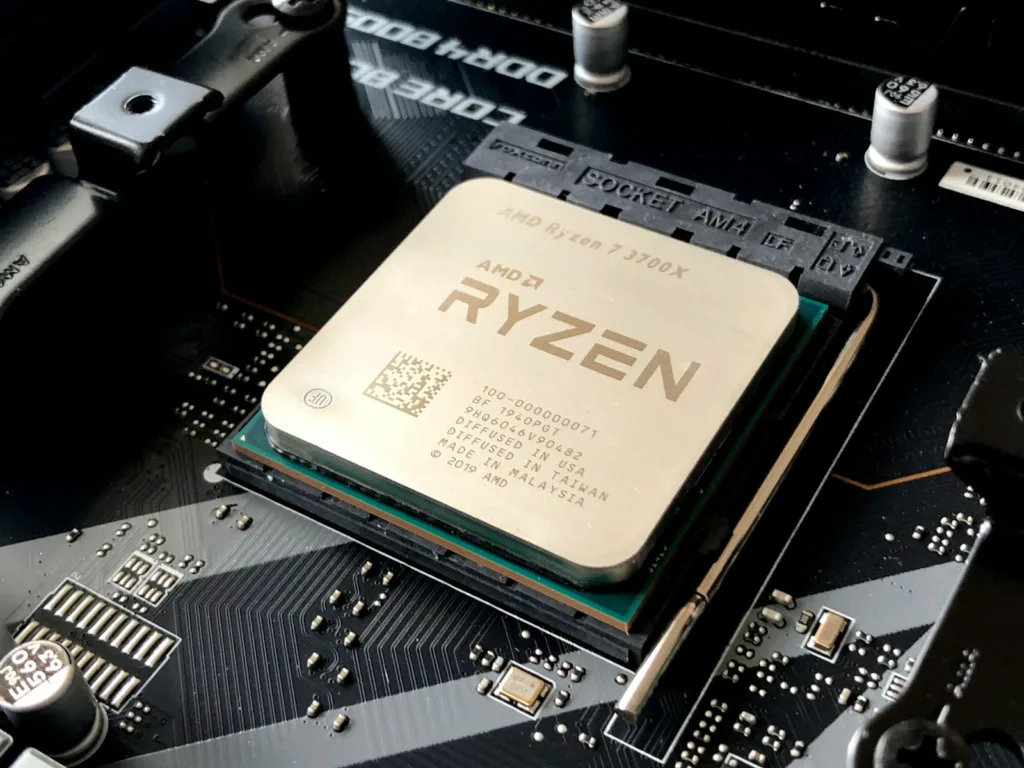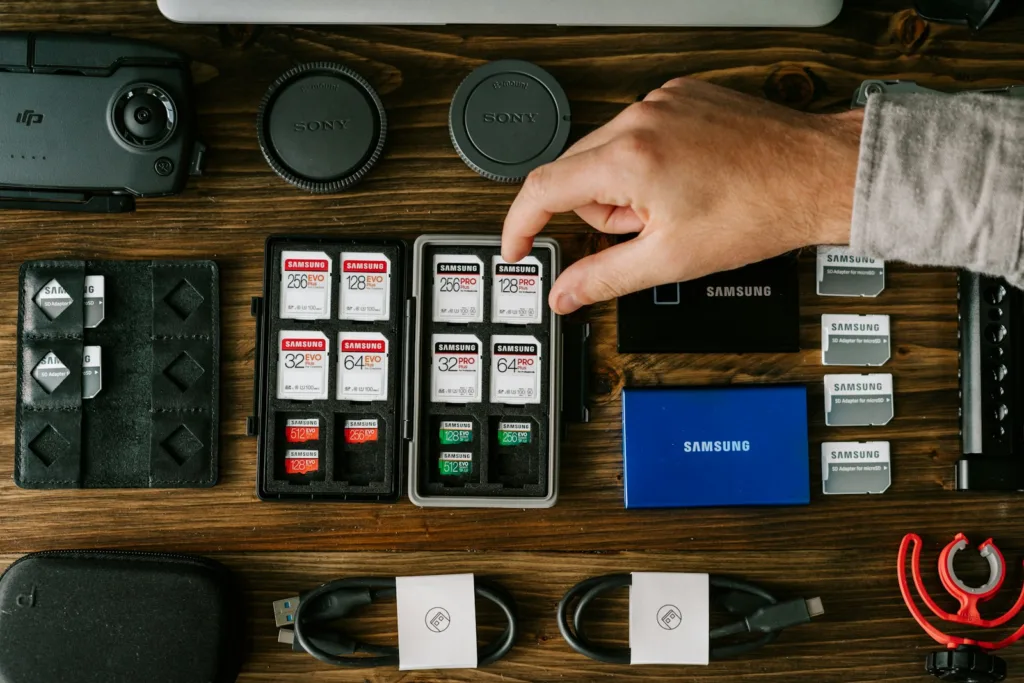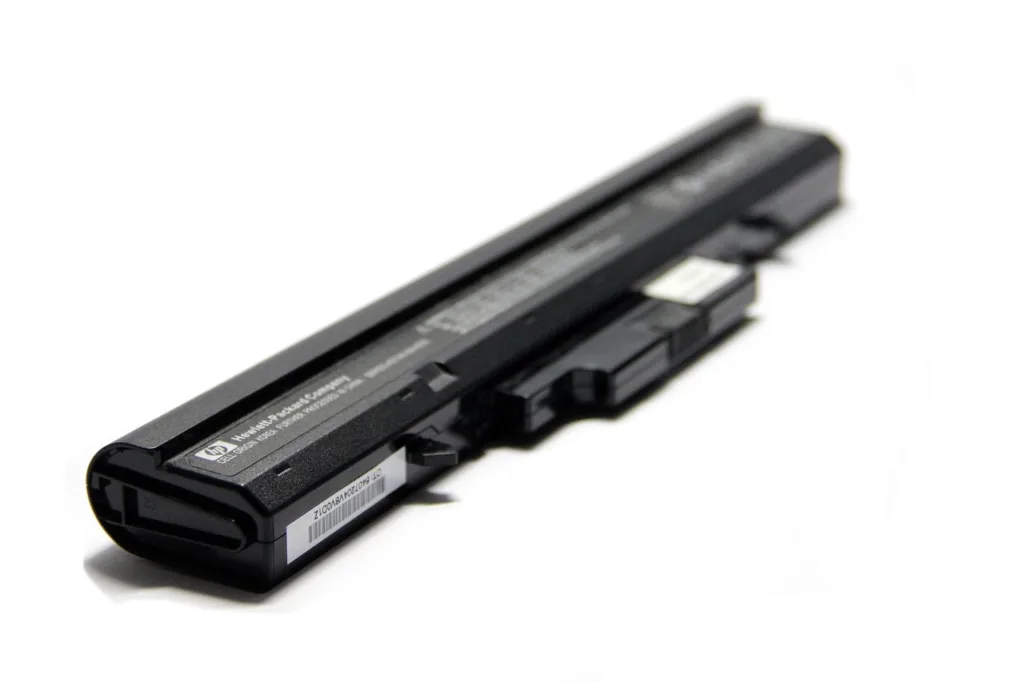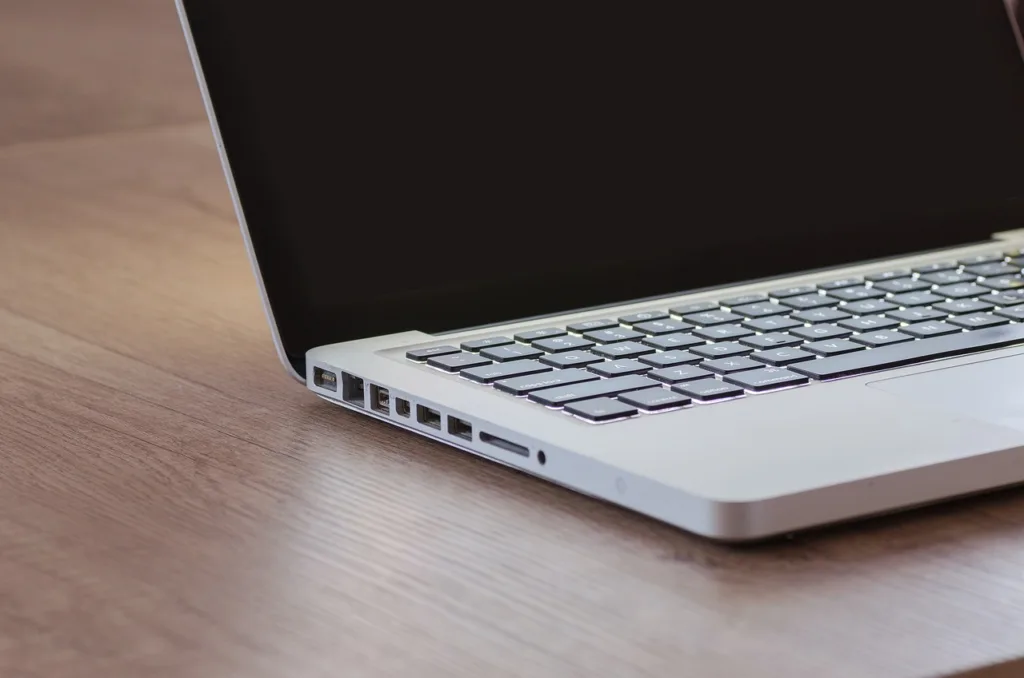This website may contain affiliate links, which means I may receive a commission if you click on a link and make a purchase. While clicking on these links won't cost you any extra money, they will help me keep this site up and running. Your support is appreciated!

Step into the future of laptop design with stunning new form factors that promise to revolutionize the way we work, play, and create. From sleek and ultra-thin models to flexible and foldable designs, the next generation of laptops offer a whole new world of possibilities. As technology continues to evolve at a rapid pace, the traditional clamshell shape is no longer the only option for portable computing. Join us as we explore the exciting innovations and advancements in laptop form factors that are shaping the future of computing.
Table of Contents
- Embracing the Era of Foldable Screens
- Return of the Swivel: Rotating Hinge Designs
- Slimmer Profiles with Carbon Fiber Materials
- Detachable Keyboards for Versatile Use
- Solar Charging Capabilities for the Eco-conscious
- Integrated Projectors for On-the-Go Presentations
- Dual Screen Laptops for Multitasking Mastery
- Haptic Feedback Trackpads for a Tactile Experience
- AI-Enhanced Cooling Systems for Peak Performance
- OLED Displays for Eye-Popping Visuals
- Questions & Answers About The Future of Laptop Form Factors
- Final Thoughts
Embracing the Era of Foldable Screens
Technology is constantly evolving, and one of the most exciting developments in recent years has been the introduction of foldable screens. These innovative displays have the potential to revolutionize the way we use and interact with our devices, and the laptop industry is embracing this new era with open arms. With foldable screens, the future of laptop form factors is set to be more dynamic and versatile than ever before.
So, what exactly are foldable screens, and why are they such a game-changer for the laptop industry? Foldable screens are essentially flexible displays that can be folded, rolled, or bent without compromising their functionality. This means that laptops with foldable screens can offer a wide range of configurations and form factors, from traditional clamshell designs to more unconventional shapes and sizes. With the ability to transform from a standard laptop into a tablet or even a compact device that can fit in your pocket, the possibilities for foldable screen laptops are truly endless.
The rise of foldable screens also opens up new opportunities for enhanced productivity and multitasking. With the ability to split the screen into multiple windows or even use different applications on each half of the display, users can take their multitasking capabilities to the next level. Additionally, the portability and flexibility of foldable screen laptops make them ideal for users who are constantly on the go and need a device that can adapt to their changing needs. Whether you’re a student, a professional, or a creative, the future of laptop form factors with foldable screens is sure to offer something for everyone.
| Pros |
| Enhanced portability and flexibility |
| Multi-tasking capabilities |
Don’t miss out on the opportunity to embrace the era of foldable screens and experience the future of laptop form factors. Companies like Samsung and Lenovo have already made significant strides in this area, with the release of groundbreaking foldable screen laptops that have captured the attention of tech enthusiasts around the world. As more manufacturers continue to explore the potential of foldable screens, it’s only a matter of time before these innovative devices become a staple in the laptop market. So, if you’re ready to take your computing experience to the next level, keep an eye out for the latest developments in foldable screen laptops and get ready to embrace the future of laptop form factors.
Embracing the era of foldable screens is not just about keeping up with the latest trends, but about embracing the next generation of computing technology. The possibilities for innovative and versatile form factors are endless, and the future is looking brighter than ever for laptop users. So, whether you’re a student, a professional, or a creative, now is the time to get excited about the potential of foldable screen laptops and the impact they will have on the way we work, create, and connect with our devices. The era of foldable screens is here to stay, and the future of laptop form factors has never looked more exciting.
Return of the Swivel: Rotating Hinge Designs

The return of the swivel hinge design in laptops has sparked a lot of interest in the tech community. With more and more manufacturers exploring innovative form factors, we are witnessing a resurgence of rotating hinge designs that promise to revolutionize the way we use our laptops. These designs allow for greater flexibility and versatility, making them ideal for a wide range of users.
One of the most exciting aspects of the return of the swivel hinge is the potential for improved user experience. By allowing users to switch between traditional laptop and tablet modes with ease, these designs offer a more seamless and intuitive way to interact with our devices. This can be particularly beneficial for professionals on the go, as well as students and creatives looking for a more natural way to work and create.
Another key advantage of rotating hinge designs is the potential for enhanced productivity. With the ability to effortlessly switch between different modes, users can adapt their devices to suit their specific needs at any given moment. Whether it’s for work, entertainment, or creativity, the flexibility offered by these designs can help users get the most out of their devices.
Slimmer Profiles with Carbon Fiber Materials
Carbon fiber materials are revolutionizing the design and construction of laptops, leading to slimmer and more lightweight profiles that are changing the future of laptop form factors. By using carbon fiber, laptop manufacturers are able to create devices that are not only thinner and lighter, but also stronger and more durable.
One of the key advantages of carbon fiber is its incredible strength-to-weight ratio, which allows for the creation of ultra-thin and ultra-light laptops without sacrificing durability. This means that users can enjoy the portability of a slim and lightweight laptop without compromising on performance or structural integrity.
Furthermore, the use of carbon fiber in laptop construction also allows for more innovative and stylish designs, as the material can be molded into sleek and seamless shapes that are not possible with traditional materials. This opens up new possibilities for creativity and aesthetics in laptop design, providing users with devices that are not only functional, but also visually stunning.
Detachable Keyboards for Versatile Use
Detachable keyboards have revolutionized the way we use laptops, offering unparalleled versatility and convenience. These keyboards can be easily attached and removed from the main body of the laptop, allowing for a seamless transition between laptop and tablet modes. They are becoming increasingly popular due to their ability to cater to a wide range of needs, from productivity to entertainment. With detachable keyboards, the future of laptop form factors is undoubtedly changing for the better.
One of the key advantages of detachable keyboards is their ability to enhance productivity. Whether you’re working on a document, spreadsheet, or presentation, having the option to use a full-sized keyboard can significantly improve your typing speed and accuracy. Additionally, the ability to detach the keyboard and use the laptop as a tablet provides a more intuitive and tactile experience for tasks such as drawing, note-taking, and browsing. This flexibility ultimately makes detachable keyboards a great asset for both work and leisure.
Another benefit of detachable keyboards is their lightweight and portable nature. Without the keyboard attached, the laptop becomes significantly lighter and more manageable, making it easier to carry around and use on the go. This makes detachable keyboards the perfect choice for individuals who are constantly on the move and need a device that can adapt to their ever-changing environments. Additionally, the ability to switch between laptop and tablet modes seamlessly makes multitasking a breeze, allowing for a more efficient and enjoyable user experience.
| Pros | Cons |
|---|---|
| Increased versatility | Potential for keyboard loss |
| Improved productivity | Cost of additional accessory |
| Enhanced portability | Compatibility concerns |
In conclusion, detachable keyboards offer a myriad of benefits that cater to various user needs, making them a worthy investment for anyone in search of a versatile and efficient computing solution. Whether you’re a professional looking to boost productivity, a student in need of a lightweight and adaptable device, or a creative individual seeking a more intuitive way to express yourself, detachable keyboards are undoubtedly the future of laptop form factors. Embrace the versatility and convenience they offer and elevate your computing experience to new heights.
Solar Charging Capabilities for the Eco-conscious

The future of laptop form factors is looking bright with the advancement of solar charging capabilities. For the eco-conscious consumer, this means a more sustainable and environmentally friendly way to power their devices. With solar charging, laptops can harness the power of the sun to keep them running, reducing the need for traditional energy sources and lowering their carbon footprint. This innovative technology not only benefits the earth, but also provides users with a convenient and reliable power source wherever they go.
One of the most exciting aspects of solar charging for laptops is the flexibility it offers. No longer are users tied to traditional power outlets or cumbersome external batteries. Solar panels can be integrated directly into the laptop’s design, allowing for seamless and convenient charging on the go. This opens up a whole new world of possibilities for remote work, travel, and outdoor activities, where access to traditional power sources may be limited.
In addition to the environmental and practical benefits, the integration of solar charging capabilities into laptops also presents an opportunity for sleek and innovative design. Manufacturers have the chance to create slim, lightweight devices that are not only functional but also stylish. With the growing demand for sustainable technology, we can expect to see more and more laptop models incorporating solar charging capabilities in the near future.
Integrated Projectors for On-the-Go Presentations
Integrated projectors for on-the-go presentations are changing the game when it comes to laptop form factors. With the increasing demand for flexibility and mobility in the workplace, the integration of projectors into laptops has become a game-changer. Now, professionals can easily deliver presentations without the need for external projectors or cumbersome setups. This innovation is reshaping the way we approach on-the-go presentations and is gaining popularity for its convenience and practicality.
One of the key advantages of integrated projectors is their portability. With built-in projectors, professionals can easily carry their laptops and deliver presentations anywhere, without the need to lug around additional equipment. This level of mobility is especially beneficial for those who frequently travel for work or need to deliver impromptu presentations. Integrated projectors also offer a seamless transition from content creation to presentation, as users can simply switch on the projector and begin their pitch, saving time and streamlining the process.
However, it’s important to note that integrated projectors may add some weight and thickness to the laptop, impacting its overall portability. Additionally, the brightness and resolution of integrated projectors may not match those of high-end standalone projectors, which could affect the quality of presentations in some settings. Despite these potential drawbacks, the convenience and accessibility of integrated projectors make them a compelling option for professionals who need to deliver on-the-go presentations regularly.
Dual Screen Laptops for Multitasking Mastery
When it comes to multitasking, having a dual screen laptop can be a game-changer. Imagine being able to have multiple applications running simultaneously, without the need to constantly switch between tabs. With the rise of remote work and the increasing demand for productivity tools, dual screen laptops are becoming the future of laptop form factors.
One of the most exciting aspects of dual screen laptops is the versatility they offer. From being able to view multiple documents side by side, to having a video call on one screen while taking notes on the other, the possibilities are endless. Additionally, with the advancement of touch screen technology, navigating through multiple screens becomes even more seamless.
While dual screen laptops certainly have their benefits, it’s important to consider the potential downsides as well. The added weight and bulk of the second screen may not be appealing to those who prioritize portability. Additionally, there may be a learning curve when it comes to efficiently using both screens at the same time. However, for those who are willing to adapt, the benefits of multitasking mastery are well worth it.
Haptic Feedback Trackpads for a Tactile Experience
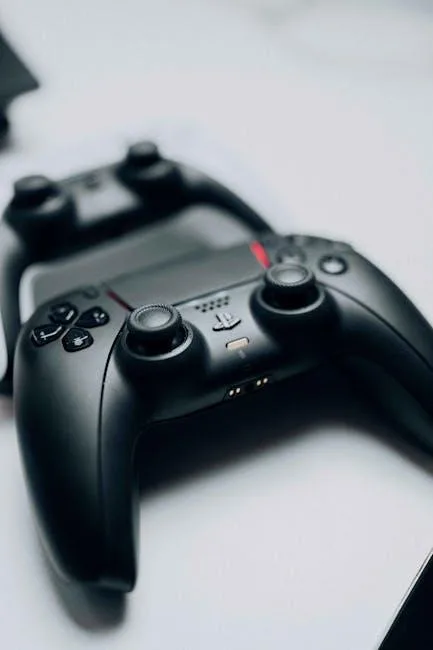
The haptic feedback trackpads are a revolutionary addition to laptop form factors that provide a tactile experience like never before. These trackpads utilize advanced technology to simulate the sensation of touch, offering a more immersive and interactive user experience. It’s a game-changer for those who crave a more tactile relationship with their devices.
One of the key advantages of haptic feedback trackpads is their ability to provide precise, responsive feedback to the user’s touch. This makes interactions with the trackpad more intuitive and natural, as users can feel the feedback of their actions. This can be especially beneficial for creative professionals who rely on precise movements for tasks such as graphic design or video editing. Additionally, haptic feedback trackpads can enhance the overall user experience, making for more engaging and enjoyable interactions with the laptop.
However, as with any emerging technology, there are potential drawbacks to consider when incorporating haptic feedback trackpads into laptop form factors. One of the main concerns is the potential cost increase associated with implementing this advanced technology. Consumers may need to weigh the added expense against the benefits of the tactile experience.
Additionally, there may be a learning curve for some users who are accustomed to traditional trackpads, as haptic feedback trackpads require a different approach to navigation and control. It’s important for manufacturers to provide adequate support and resources to help users adjust to this new technology.
Overall, haptic feedback trackpads represent an exciting advancement in the world of laptop form factors, offering a more immersive and engaging user experience. As this technology continues to evolve, it has the potential to redefine the way we interact with our devices in the future.
Advantages of Haptic Feedback Trackpads
- Precise and responsive feedback
- Enhanced user experience
- More intuitive interactions
Potential Drawbacks
- Potential cost increase
- Learning curve for some users
- Need for manufacturer support and resources
AI-Enhanced Cooling Systems for Peak Performance
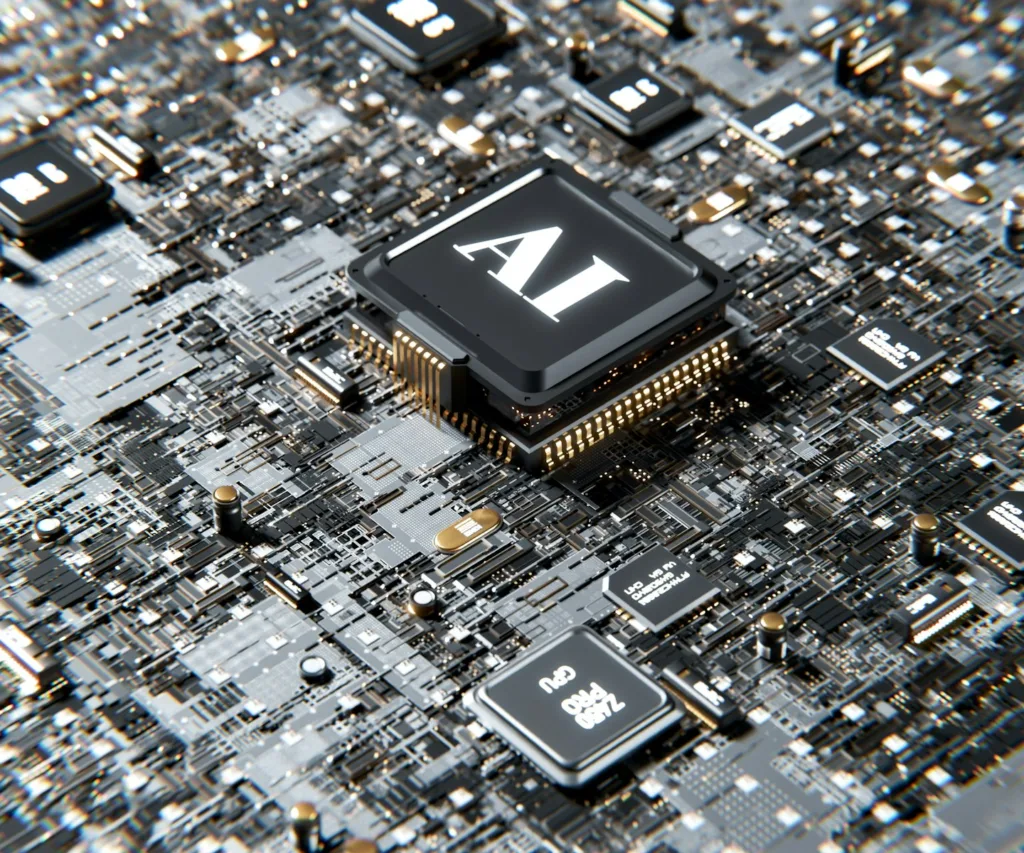
AI-enhanced cooling systems for laptops are revolutionizing the way we think about peak performance. These innovative technologies are designed to optimize the cooling process, ensuring that your device stays at the perfect temperature for maximum efficiency. With AI technology, these cooling systems can adapt to the specific needs of your laptop, providing customized cooling solutions based on usage patterns and workload.
One of the most exciting aspects of AI-enhanced cooling systems is their ability to improve the overall form factor of laptops. By optimizing the cooling process, manufacturers can design sleeker and more compact devices without sacrificing performance. This means that the future of laptop form factors is looking more streamlined and sophisticated than ever before.
In addition to improving form factor, AI-enhanced cooling systems also have the potential to extend the lifespan of laptops. By keeping devices at the optimal temperature, these systems can reduce the risk of overheating and component damage. This not only benefits the user by prolonging the life of their device, but also has positive environmental implications by reducing electronic waste. With these advancements, the future of laptop form factors is not only about aesthetics, but also about sustainability and longevity.
| Pros | Cons |
| Improved form factor | Initial cost |
| Extended device lifespan | May require specialized maintenance |
OLED Displays for Eye-Popping Visuals
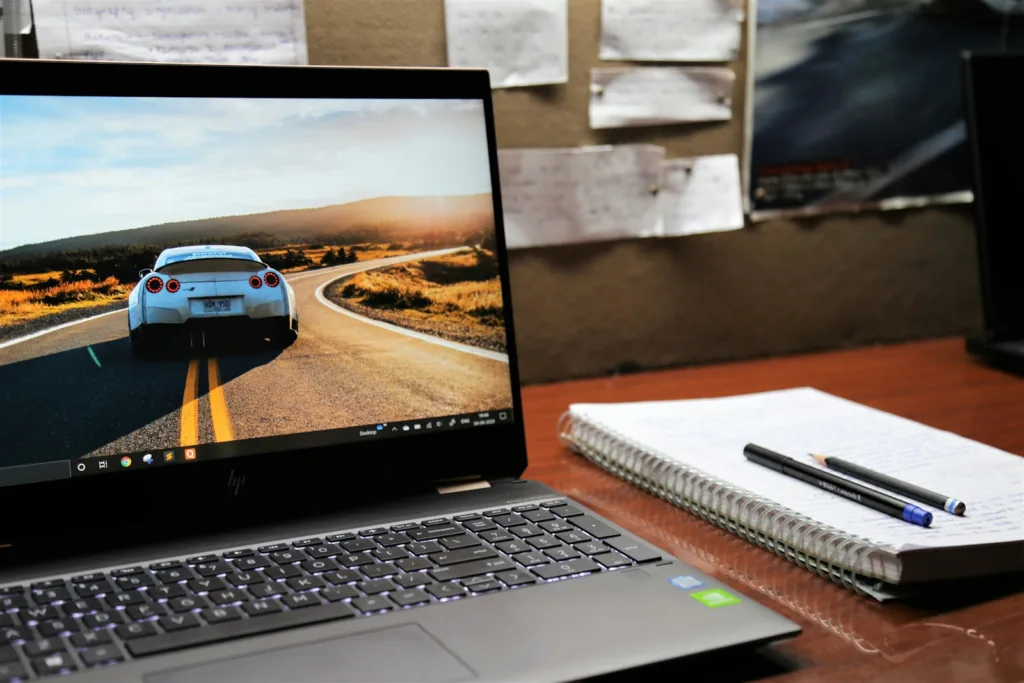
The future of laptop form factors is looking brighter than ever with the introduction of . OLED (Organic Light-Emitting Diode) technology offers a range of benefits that make it a game-changer for laptop displays.
Here’s why OLED displays are revolutionizing the way we experience visual content on our laptops.
One of the most compelling aspects of OLED displays is their ability to deliver stunning contrast ratios and vibrant colors. This means that images and videos appear more lifelike and immersive, making them perfect for a wide range of content consumption, from movies and TV shows to gaming and design work. Additionally, OLED displays have faster response times than traditional LCD displays, resulting in smoother motion and reduced motion blur – a key consideration for gamers or anyone who enjoys watching fast-paced content.
Another advantage of OLED displays is their energy efficiency compared to LCD screens. Because OLED pixels emit light individually, they can be turned off completely to achieve true blacks, saving power when displaying dark content. This not only leads to better battery life for laptops, but also contributes to a more eco-friendly display technology. With these benefits in mind, it’s no wonder that leading laptop manufacturers such as Dell, HP, and Apple are incorporating OLED displays into their flagship devices.
Questions & Answers About The Future of Laptop Form Factors
What are some current trends in laptop form factors?
Some current trends in laptop form factors include the rise of 2-in-1 devices that combine the functionality of a laptop and a tablet, as well as the increasing popularity of ultra-thin and lightweight laptops.
Will traditional clamshell laptops become obsolete?
While traditional clamshell laptops may not be as prevalent in the future, they are unlikely to become completely obsolete, as there will always be a demand for the familiar form factor.
What are some potential new form factors for laptops?
Potential new form factors for laptops could include foldable designs that allow for flexibility and portability, as well as modular designs that allow for customizable components.
How will advancements in display technology impact laptop form factors?
Advancements in display technology, such as foldable and rollable screens, could potentially lead to more innovative and space-saving designs for laptops in the future.
What role will augmented reality and virtual reality play in shaping laptop form factors?
Augmented reality and virtual reality technologies could potentially lead to the development of laptops with integrated AR/VR capabilities, as well as more immersive and interactive form factors.
Will the traditional keyboard and touchpad be replaced by alternative input methods?
While alternative input methods such as touchscreens and voice control may become more prevalent, the traditional keyboard and touchpad are likely to remain important input options for laptops.
What impact will advancements in battery technology have on laptop form factors?
Advancements in battery technology could lead to more compact and lightweight laptops with longer battery life, as well as the potential for new form factors that prioritize mobility.
How will the demand for sustainability and eco-friendly design impact laptop form factors?
The demand for sustainability and eco-friendly design could lead to the development of laptops made from recycled materials and with modular components that can be easily upgraded or repaired.
What role will AI and machine learning play in shaping the future of laptop form factors?
AI and machine learning could potentially lead to the development of laptops with predictive and adaptive form factors that can dynamically adjust to users’ preferences and needs.
How will the rise of remote work and digital nomadism influence laptop form factors?
The rise of remote work and digital nomadism could lead to an increased demand for highly portable and versatile laptops that are optimized for productivity on-the-go.
Final Thoughts
As we look ahead to the future of laptop form factors, the possibilities seem endless. From flexible, foldable designs to ultra-portable, lightweight options, it’s clear that innovation will continue to push the boundaries of what a laptop can be. Whether you’re a tech enthusiast or just someone in need of a reliable workhorse, there’s no doubt that the future holds exciting things for laptop form factors. So, keep your eyes peeled for the next big thing in the world of portable computing – it’s sure to be a game-changer!

